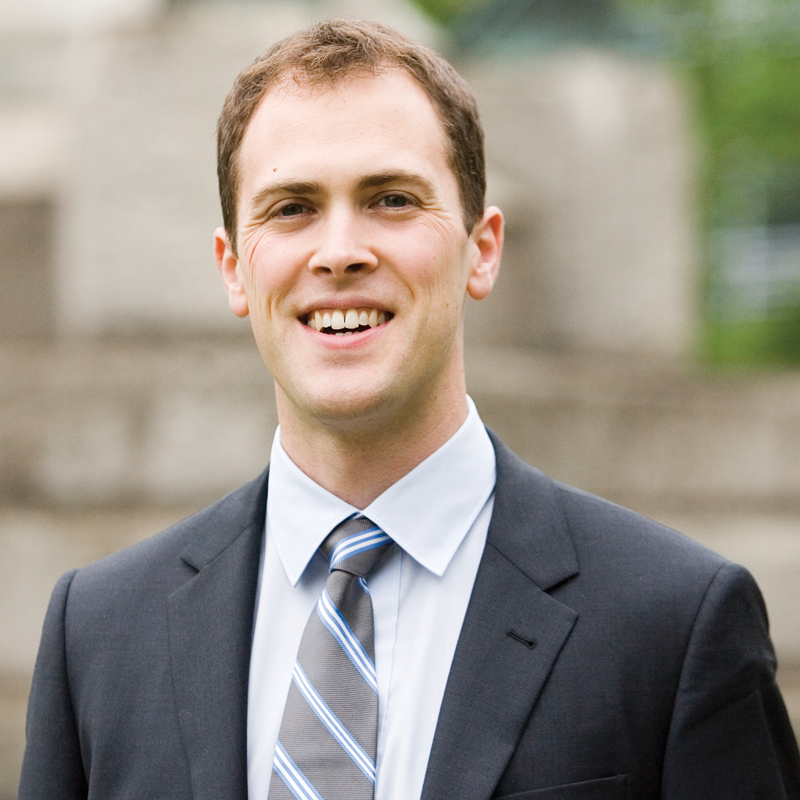Call of History
Historian James Graham Wilson ’03 works for a highly regarded government office largely unknown outside of political, academic, and scholarly circles: the U.S. Department of State’s Office of the Historian.

Even less well known, but of tremendous importance, is the series of publications the office produces—the Foreign Relations of the United States (FRUS). According to the State Department, FRUS presents “the official documentary historical record of major U.S. foreign policy decisions and significant diplomatic activity.” Basically, the volumes detail how foreign policies are formulated and executed, and what repercussions emerge from their implementation.
The first volume in the FRUS series was published under the Lincoln administration in 1861. Aaron W. Marrs, who wrote about the origins of the series for a chapter in the book Toward “Thorough, Accurate, and Reliable,” noted that then–Secretary of State William Seward linked the publication “to the exercise of democracy; because the authority of the government derived from the people, the people deserved to see the correspondence which revealed how policy was being carried out.”
Today, the Office of the Historian employs about 40 historians—three-quarters of whom work primarily on compiling, editing, and shepherding volumes in the FRUS series through intra-governmental declassification review.
The series currently contains 480 individual volumes based on documents acquired from the private papers of individuals involved in U.S. foreign policy, as well as from presidential libraries, departments of State and Defense, the National Security Council, the CIA, and the Agency for International Development, among other agencies.
Wilson has compiled two FRUS volumes covering Soviet policies during the Reagan administration and is currently working on two additional volumes: “National Security Policy, 1985–1988” and the “Strategic Arms Reduction Treaty.”
Like his fellow historians, Wilson has exemplary skills in performing research using primary documents. But his training began long before he arrived at the State Department. It started at Vassar.
“In every history course, we wrote a paper based on primary sources,” Wilson says, recalling his days at the college. “When it came time to think about a master’s thesis and then a dissertation, I had had the experience at Vassar of having engaged with minutes of meetings, drafts of speeches, diary entries, and other sources. And I think that experience is a reason why so many history majors from Vassar have gone on to top-notch history PhD programs.”
Indeed, Wilson went on to earn a PhD in American history at the University of Virginia, where he studied with Melvyn Leffler, one of the leading experts on American foreign policy.
Wilson had become interested in the Cold War as a history major at Vassar. Studying under Robert Brigham, professor of history and international relations, Wilson used FRUS volumes to do research for his thesis on the Kennedy administration. After Vassar, he worked as a research assistant for historian Arthur Schlesinger Jr. in New York City before pursuing his doctorate.
“I wanted to do a PhD in history and was trying to come up with a few questions that I thought were worth tackling over the course of six to seven years,” he notes. “Why did the Cold War end when it did? What was the role of key individuals such as Ronald Reagan and Mikhail Gorbachev? Was there a concerted strategy on either side?”
He considers it a stroke of luck that he decided to write his dissertation on the end of the Cold War just as the records of the most important meetings between Reagan and Gorbachev were declassified. He was able to plow through hundreds of documents detailing interactions between Russian officials and the Reagan administration.
Wilson started graduate school with only a limited background in Russian history and didn’t speak the language, but he grew to love both. He began learning Russian and even traveled to Moscow to conduct research in the archive of the Gorbachev Foundation, which houses records of the leader’s decision-making meetings with foreign officials.
“One of the neat things is to compare the Russian notes about meetings to U.S. ones at the Reagan Library,” Wilson says.
His position as historian at the U.S. Department of State has allowed him to continue studying a topic that has intrigued him since his college years. As he works to complete his own FRUS volumes on the Cold War, he notes with pride that, “Soon, undergraduate students can consult Reagan FRUS volumes,” just as he pored through the Kennedy volumes when he was at Vassar.
—Elizabeth Randolph
